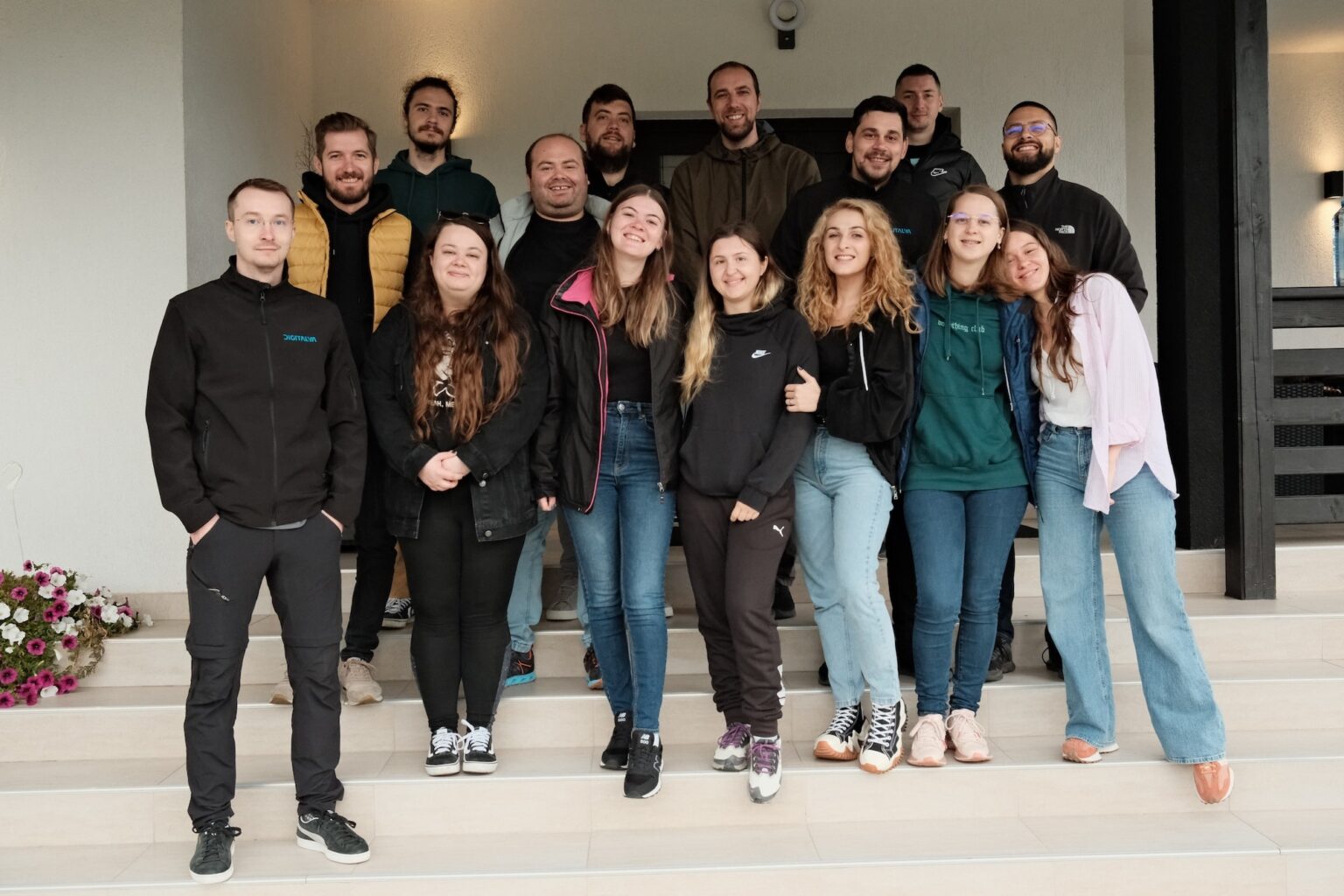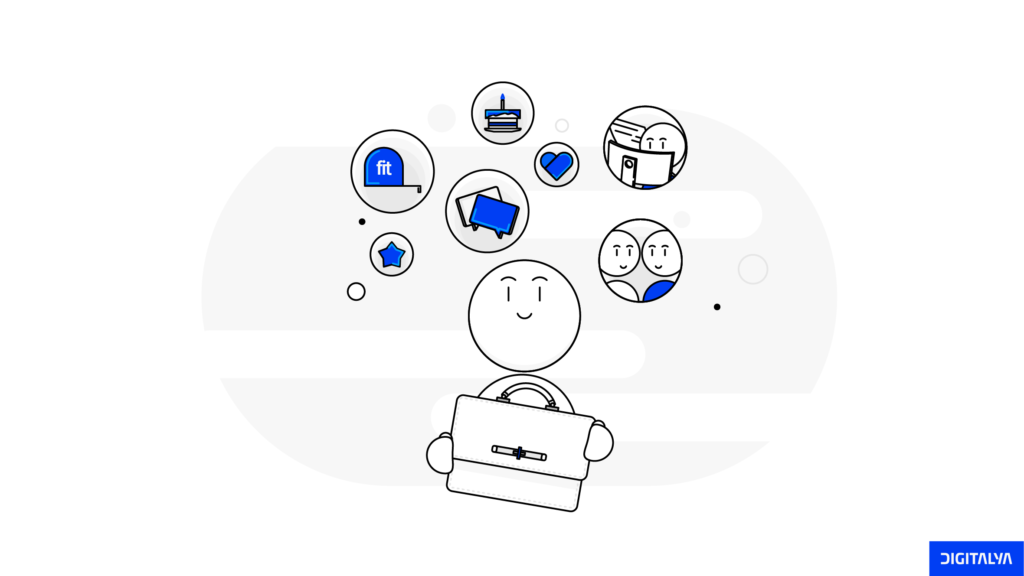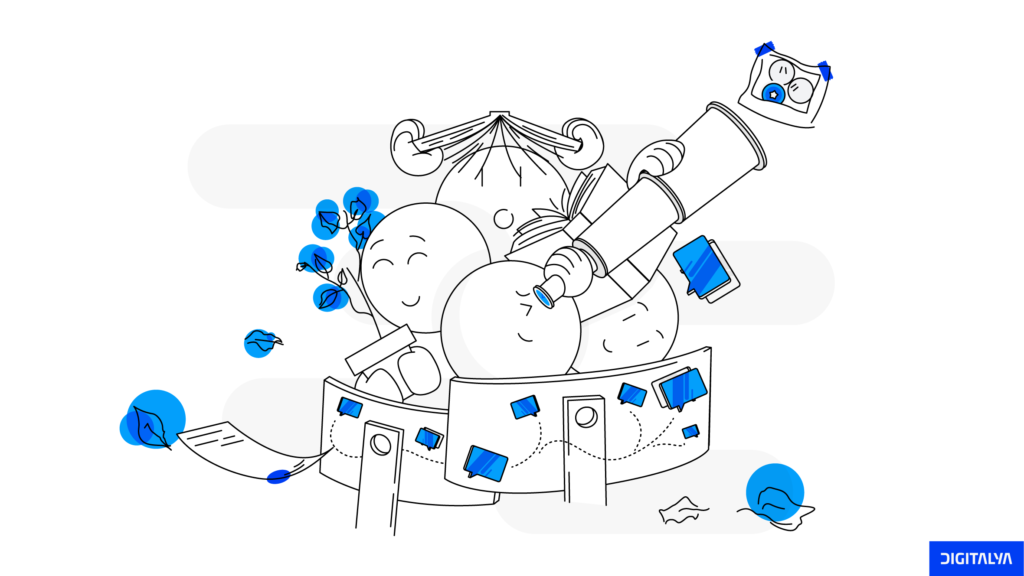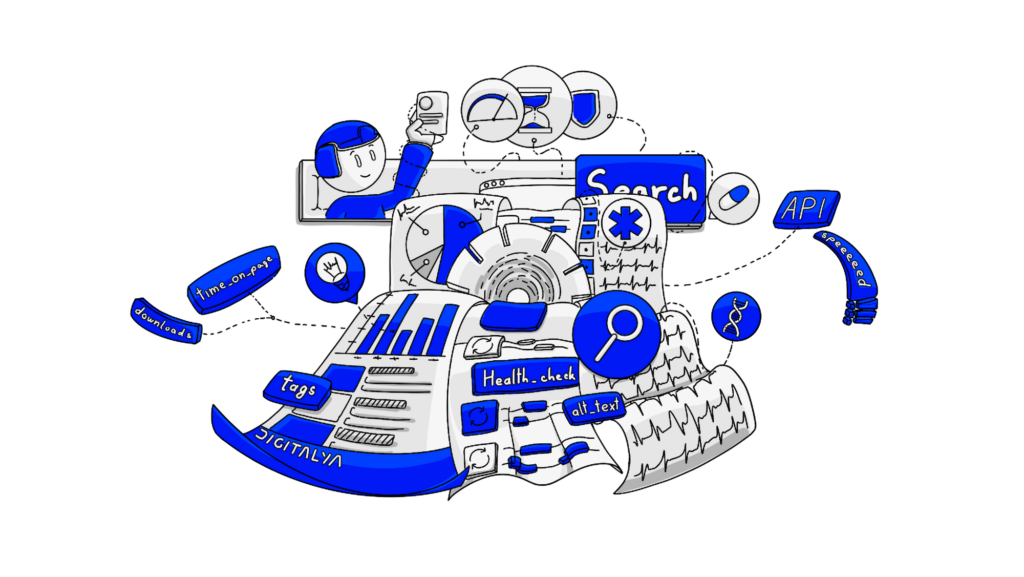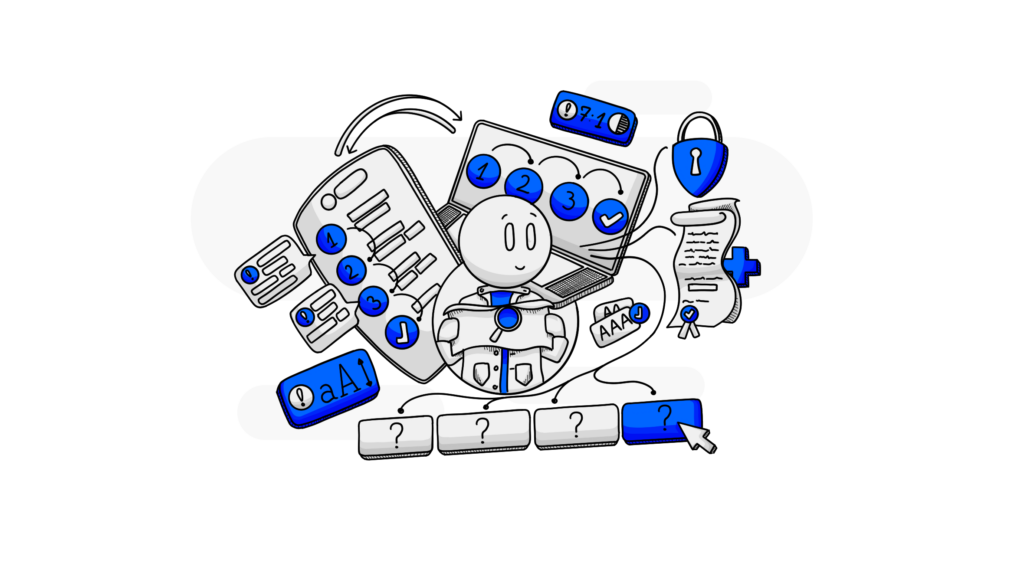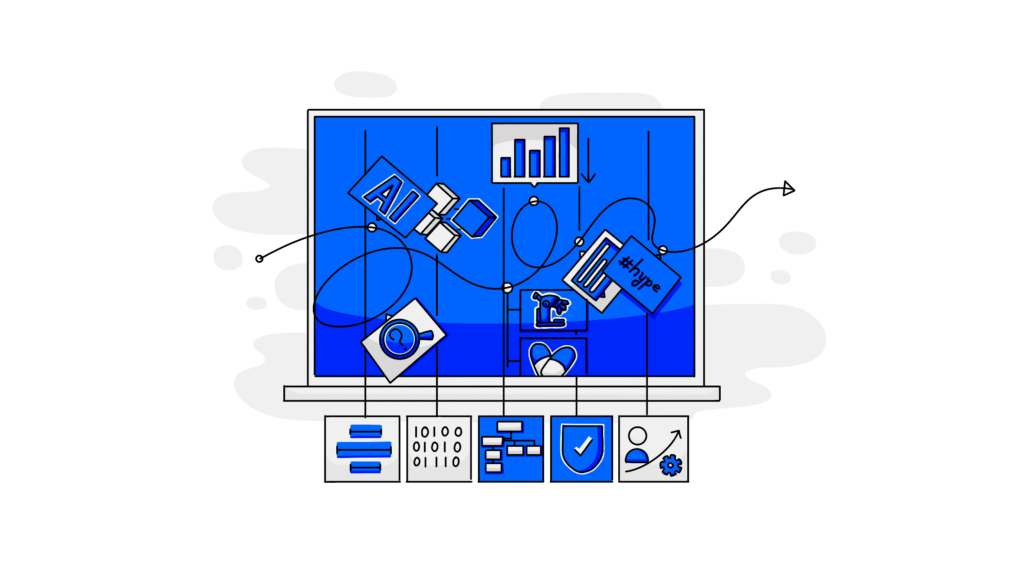1. Meet our colleagues with success stories
If any of these scenarios resonate with you, then you might be surprised to learn that a career in software development could be the perfect fit — even if you don’t have a background in computer science.
This article is a compilation of inspiring stories from our own employees who took the leap and found their dream jobs in software development. Let’s see who they are:
Andrei Silvas, one of our tech leads, graduated from the Faculty of Management and worked in Italy for a while. He always felt like working in IT would be better for him, especially since he thought about studying computer science, even though he didn’t in the end.
Vlad Duminica, currently on our QA team, worked as a pharmacist for eight years before making a career change.
Next, we have Mircea Bozianu, one of our web developers, who also worked in pharmacy before focusing on the IT industry.
Antonia, another member of our web development team, has also worked in the pharmacy industry for two years before making the change. She felt pharmacy wasn’t everything she hoped for, especially since she regretted not choosing the Faculty of Automation and Computer Science.
Bianca, a web developer, has studied pedagogy because, even though she would have wanted to choose a technical faculty, she felt she might not have what it takes to handle it. She chose pedagogy because it was a way to impact people’s lives, but realized that she wasn’t enjoying it and decided to try her hand at programming.
2. Why can changing career paths be good for you?
From discovering untapped potential to finding greater job satisfaction, our team members’ stories reveal how embracing change can lead to a more fulfilling and dynamic professional life.
Let’s discover the transformative benefits of changing career paths and find inspiration from those who have dared to pursue their true passions.
One of the first questions we asked our colleagues was how they knew the time was right to make a career change.
“I just thought that if I wanted to do this, that was the moment to see if it would work. When I returned from Italy, I would start from scratch anyway,” said Andrei.
“I felt a little trapped at my current job and needed to pick my brain with something else. Together with my family, we put together a pros and cons list, and the final conclusion was that it was the perfect time,” answered Vlad.
“I’ve decided based on how I felt at my job. Even though the people were nice, the work I was doing wasn’t satisfying — therefore, I decided to make a change. The fact that I had friends who were programmers helped me make the choice,” said Mircea.
Antonia’s decision was influenced by her husband’s work in IT. Although she found it challenging, the work environment was a good fit for her. She also liked the idea of working in a team.
Bianca felt that her work at the time was repetitive and lacking in opportunities for growth. She felt an attraction to a more technical industry — especially since she had a fear to overcome.
When asked about the most significant factors that made them take a leap of fate, the common points were a need for more satisfaction, more meaningful work, and a challenge to overcome. They gathered up their courage and tried something new.
They aspired to a more flexible work schedule, to explore their passion for technology, and to work in an environment that was more open-minded and inclusive.
3. The transition process
Another question for our colleagues was how they prepared for this transition—whether they were applying for courses or internships before looking for a new job.
Some opted for face-to-face or online programming courses, while others found learning materials and studied independently. Internships were also an option, offering a great stepping stone for a new career in the IT industry.
When asked which were the biggest challenges they had to overcome during their transition period, they each gave interesting answers:
“There were technical challenges I had to overcome. As I started to learn more complex things, I had to adapt and continue learning. When we started our current project, I became Andrei, our specialist in everything. But there was one night when I left the office at 10 p.m. because something didn’t work as it was supposed to,” answered Andrei.
“Adapting to cultural and language barriers has been a little bit challenging in the beginning. Additionally, I kept running into things I didn’t yet know about. However, these kinds of things help you move forward,” said Vlad.
Mircea told us that a challenge for him was truly understanding a programming language. He says that even today, there might be things he doesn’t know, but he learned to research online because “surely someone else has had the same problem before.”
For Antonia, it was the fact that, after completing the course, it wasn’t clear how those skills would fit into a real project, as well as how actual project management works.
Bianca started with an internship after her course. However, after a while, she felt like she needed more opportunities to learn and do something different.
Another interesting part of the discussion was their transferable skills. Even though when you make a career change, you have to start from scratch, there are usually some skills you have already learned that you can still use.
For Andrei, since he worked in sales before, he had communication and management skills that came in handy.
The same goes for Vlad — his former job included managing multiple departments with people working in different domains, and he required great attention to detail.
Soft skills, being organized and disciplined, being present — Mircea added those to the list.
For Antonia, one of the most important transferable skills was being able to listen actively and understand other’s perspectives.
On the same note, Bianca added that it’s important to be able to find the good side of any person or situation you’re in, no matter how much you dislike it at the respective moment.
4. Experiences and reflections
It’s always important to look back and analyze our experiences, especially regarding something major like a career change. Was it worth it? Would you do anything differently?
The first thing we were curious to discuss is a comparison between the satisfaction and fulfillment they felt from their jobs before the transition and after.
“I like my current job a lot. It’s very satisfying to me that I’m part of significant projects that allow me to have an actual impact on people’s lives,” answered Andrei.
Vlad said that when he was a pharmacist, his stress levels were high. At his current job, he said that he feels less stressed and that he is more fulfilled with the work that he does. Mircea was on the same note, adding that his current job allows him to focus more on himself.
“At my current job, I feel like I can be genuine. If I want to discuss something, people will listen and understand. I feel like I’m close to my coworkers. I like coming to the office and working with my team,” said Antonia.
The next thing we wanted to know was if there were any surprising things they learned about themselves during the transition process.
Andrei discovered that if he wants to do something and puts in a little elbow grease, he can do anything.
“I surprised myself in the sense that I didn’t expect to be able to handle it. However, I managed to adapt, and everything worked out in the end,” answered Vlad. On the same note, Mircea said that he found out that even though something is a little bit difficult, you can understand it if you’re willing to put in the effort.
“I discovered that I can be quite analytical and logical. Additionally, especially when it comes to work, I can be very organized,” added Antonia.
For Bianca, she surprised herself by being very patient and persistent. She definitely exceeded some of her limits.
When going through a career change, another thing you need to be prepared for is starting from scratch with a new job, with different levels of seniority, difficulty, and work environments.
“It was a difficult thing, but I was prepared for it. I had my brother-in-law by my side, and that helped me understand what was going to happen,” said Andrei.
Vlad added that “it was hard in the beginning, especially because of the financial downgrade. But I had to see the big picture, otherwise the transition would have lost its meaning. As long as you have your objective set, everything will work out.”
Mircea touched on the topic of the impostor’s syndrome. You never know what’s next — that’s the challenging part. “You don’t know that what you do is hard, and you have to get used to asking for help.”
For Antonia, the most challenging part was working in a totally different industry. She kept thinking that she had less knowledge than a person who studied computer science. However, she adapted, and she feels like her standards regarding her place of work have gone up since the change was made.
5. Advice for others
After you’ve made a successful career change, it’s important to give advice and support others who are thinking about going through the same process. Therefore, if you are in this situation, we’ve asked our colleagues to share some words of wisdom.
What advice would you give someone considering going through a career change?
AndreiIt can be done if you prepare yourself, work hard, and get involved. The main point is developing the necessary skills. Formal studies aren’t as important as it seems — if you really want something, you can learn on your own.
VladFirst, you need to see if this change would be good for you. Have a clear, realistic objective. Find out what you want to learn and what your end goal is, where you want to be in 2, 5, or 10 years, and take it step by step. Ideally, money shouldn’t be the only or the most significant motivation. Fulfillment and satisfaction can be more important than financials.
MirceaPeople have certain expectations, and most of them change careers for better pay. I would be a hypocrite to say that this didn’t matter to me. However, if you want this to be meaningful, you should first see what your chosen programming language is about, choose another if that one doesn’t work, and if nothing changes, maybe it’s not for you. Take your time, and be consistent, but don’t overwork yourself.
AntoniaI think the best piece of advice I could give is that if you really want something, never give up. It’s very easy to get overwhelmed and say it’s not for you. You need to be consistent and have a clear picture of where you want to be. There will be negative feelings when you feel like you’re at the end of your road, but all you need is a break.
BiancaIf at first you don’t succeed, try and learn other things. You need to have patience and not throw it all away just because your first attempt was unsuccessful.
The journey to find your dream job is often filled with challenges, learning curves, and moments of self-discovery, but the potential for personal and professional growth is immense.
Changing careers can be a daunting leap, but the stories of our colleagues prove it’s a journey well worth taking. With the right mindset, resources, and support, you can successfully transition into the world of software development. Remember, your past experiences and skills are valuable assets that can be leveraged in this dynamic field.
Are you ready to embark on your new career journey?
